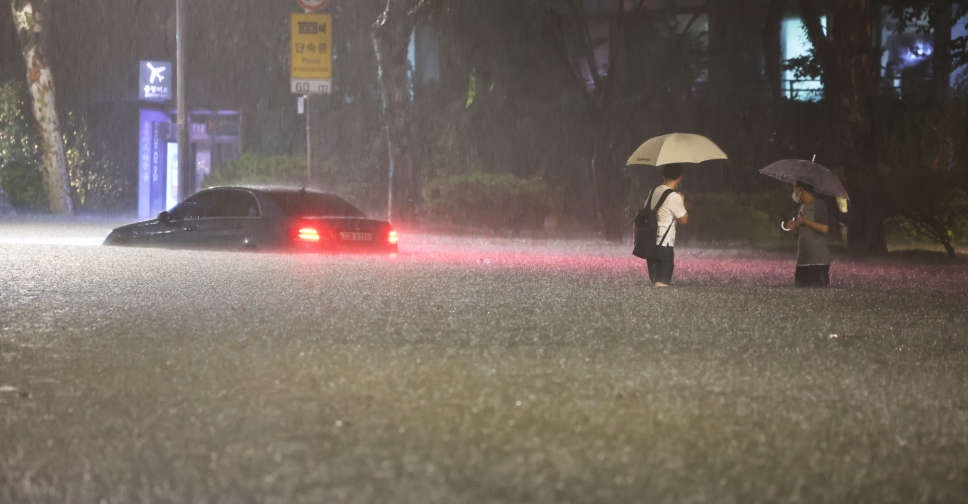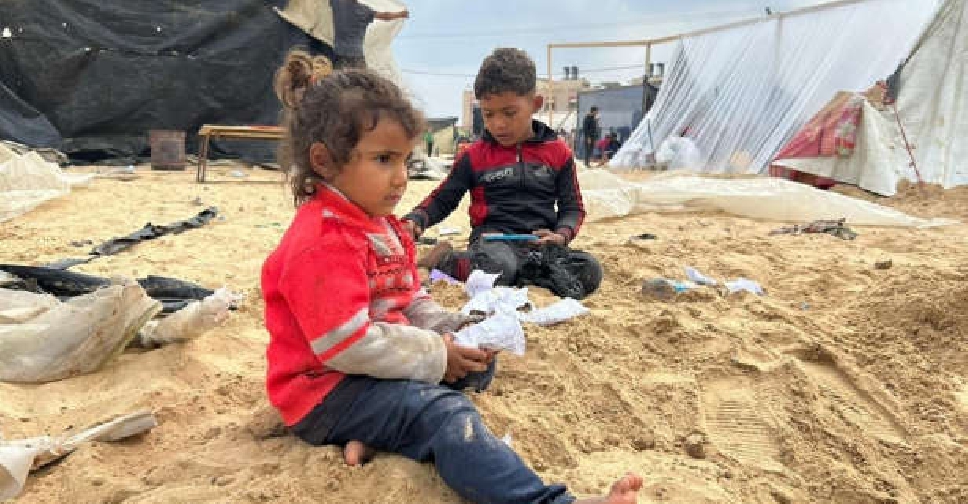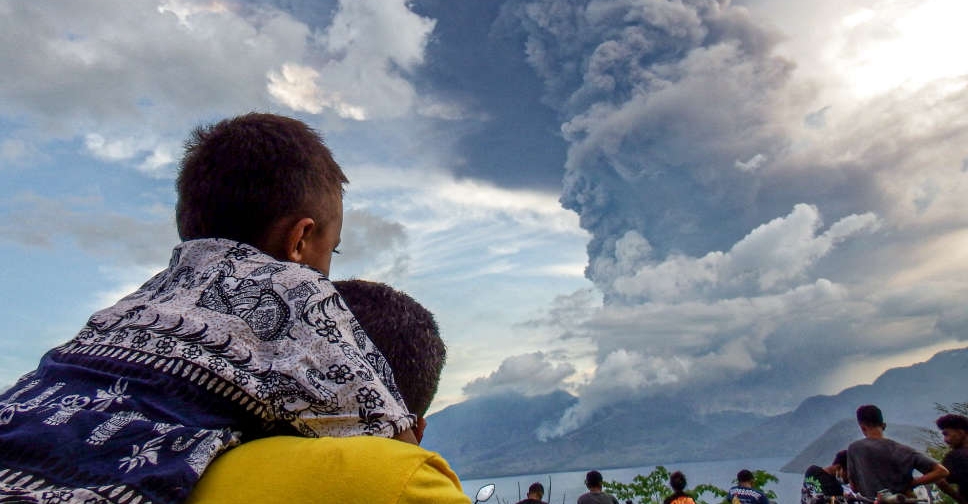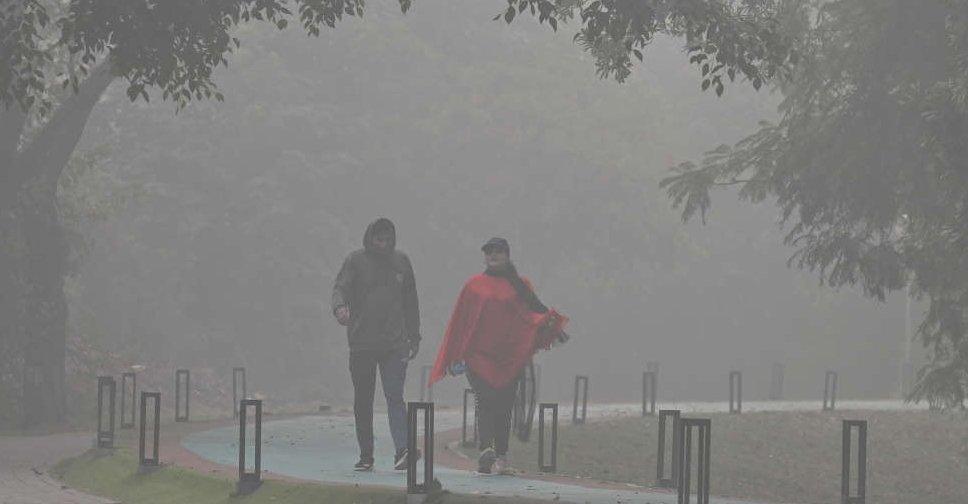
At least eight people died in and around the South Korean capital of Seoul overnight, authorities said on Tuesday, after torrential rain knocked out power, caused landslides and left roads and subways submerged.
The southern part of Seoul received more than 100mm of rain per hour on late Monday, with some parts of the city having received 141.5mm of rain, the worst rainfall in decades, according to Korea Meteorological Administration (KMA).
The accumulated rainfall in Seoul since midnight Monday stood at 451mm as of 2:00 pm Tuesday, with more rain forecast.
In the glitzy, dense Gangnam district, some buildings and stores were flooded and were without power, while cars, buses and subway stations were submerged, leaving people stranded.
Lim Na-kyung, a 31-year-old office worker, recounted her fears of Monday evening, saying the situation reminded her of a scene from the 1997 film Titanic.
"I had to keep going higher and higher because the building was submerging at a fast pace... I couldn't believe that I was trapped in building with 40 other people in the middle of Gangnam district," said the mother of two, who eventually had to spend the night at a Pilates centre on the fourth floor.
At least five people died in Seoul and three others in the neighbouring Gyeonggi Province by early Tuesday, the Central Disaster and Safety Countermeasures Headquarters said. Four died after being drowned in flooded buildings, one was believed to have been electrocuted, another person was found under the wreckage of a bus stop, and the other two died in a landslide, it said.
At least nine people were injured, while seven were missing.
Data showed at least 765 facilities were damaged, while about 52 highways and roads have been blocked. There were about 391 victims across the greater Seoul area, most of whom had to stay at local schools and gyms, while another 399 temporarily evacuated to community centres and schools, according to the data.
The headquarters raised the crisis alert to the highest and requested organisations adjust their working hours.
The KMA issued heavy rain warnings across the capital and the metropolitan area of 26 million as well parts of Gangwon and Chungcheong Province.
President Yoon Suk-yeol presided over an emergency response meeting, ordering authorities to focus on preventing casualties and quickly controlling and recovering flooded areas, the disaster headquarters said.
The KMA expects heavy rainfall for the central part of the country to continue through at least Wednesday.
While South Korea often experiences heavy rains in summer, "such sharp increase in precipitation and frequent torrential rains cannot be explained without the big trend of climate change," a KMA official, who spoke in condition of anonymity, told Reuters. "This phenomenon is seen occurring more often due to climate change that has resulted in a prolonged summer."



 UN: 70% of Gaza fatalities women and children
UN: 70% of Gaza fatalities women and children
 Britain names Jonathan Powell as national security adviser
Britain names Jonathan Powell as national security adviser
 Indonesian volcano spews ash 10 km high
Indonesian volcano spews ash 10 km high
 Israeli PM directs two rescue planes to Amsterdam
Israeli PM directs two rescue planes to Amsterdam
 Pakistan bans entry to parks, zoos as air pollution worsens
Pakistan bans entry to parks, zoos as air pollution worsens





